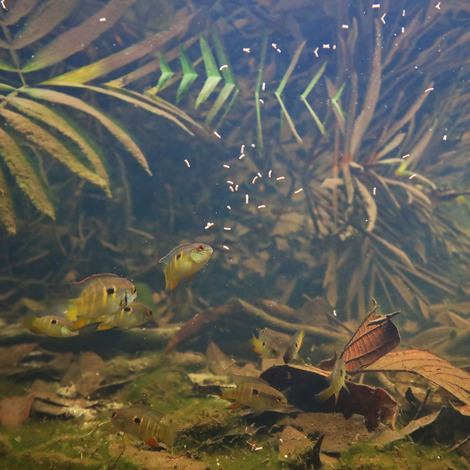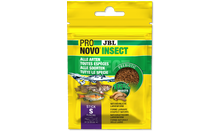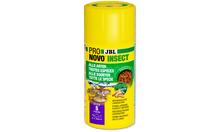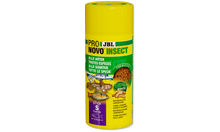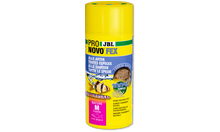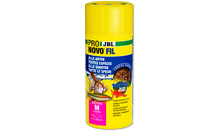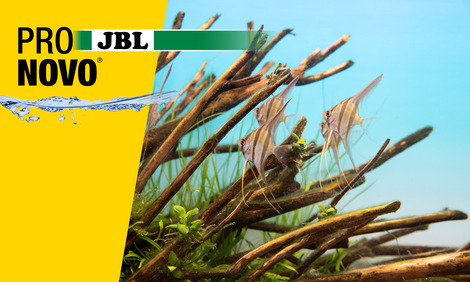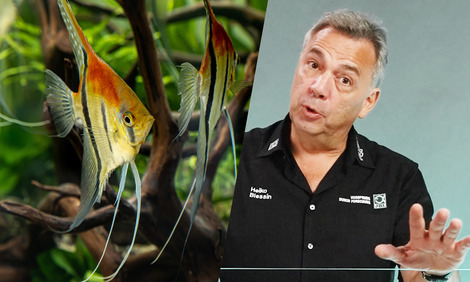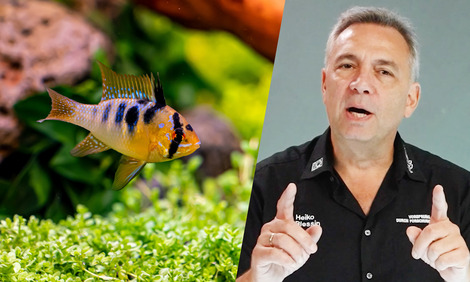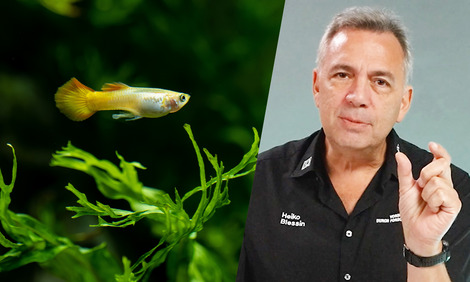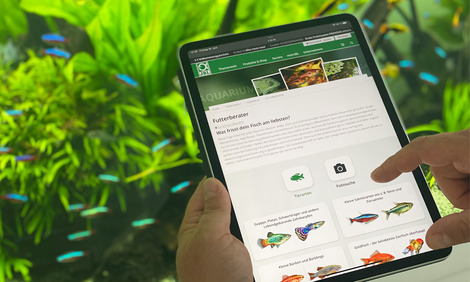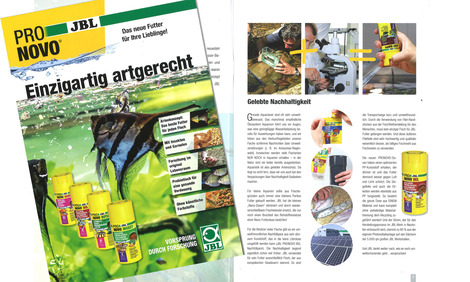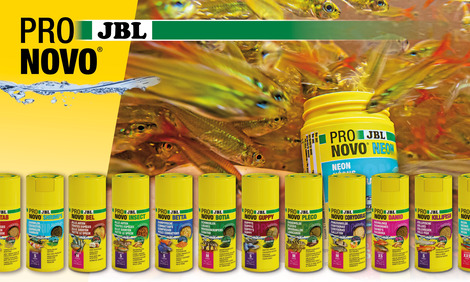There are hardly any fish that don’t eat insects and/or shrimps in their natural habitats! There are only a few highly specialised fish species, such as scale eating fish in freshwater (Plecodus straelini) or coral polyp eaters in marine water (a lot of butterfly fish) which don’t. However, if you offer them in the aquarium, these fish will often accept this food. All other fish species eat insects directly or indirectly (e.g. insect larvae in algal turf) and/or shrimps. For many fish, this is even demonstrated in the name of their diet - they are called "insectivores". The famous archerfish, which spits insects off leaves, is perhaps the best known example!
JBL therefore features insects to a much greater extent in the food compositions of the JBL PRONOVO range, but only if the fish target group has insects in its food spectrum, of course. Mixing insects into EVERY fish food for fashion reasons would be pointless! JBL PRONOVO INSECT is now available to focus on feeding insects to your fish!
Whole insects or insect larvae as fish food? It’s obvious we shouldn’t use large beetles as insect fish food. The chitin content of the shells would be far too high! Mealworms would be easy to obtain - but contain too much fat. The search for the "ideal" insect led to black soldier flies (Hermetia illucens, Black Soldier Fly abbreviated = BSF), but in larvae form. Larvae have 12 times the nutritional value of adult flies and a consistent composition. Black soldier flies are bred on a large scale and do not have to be taken from natural habitats. Since the larvae feed on animal and vegetable protein, their composition is perfect for fish. The protein of the larvae is characterised by a high vitamin concentration, a high biological value (amino acids) and very good digestibility.
JBL PRONOVO INSECT STICK S
Aquarium food sticks in size S for all aquarium fish from 3-10 cm
- Prebiotic & floating aquarium fish food: dedicated dietary fibres in the food supply the beneficiel intestinal bacteria with food for healthy digestion
- Natural raw ingredients without artificial additives for a natural diet and healthy aquarium fish. Tested on JBL research expeditions in the tropics
- Very high acceptance with all fish species thanks to high-quality raw ingredients such as insects, shrimps, salmon and squid
- With the very high-quality natural astaxanthin from shrimps, which ensures perfect colour formation in all ornamental fish
- Package contents: original sealed, air-tight and light-proof, recyclable tin with click doser as a feeding aid or in a 20 g freshlock bag











